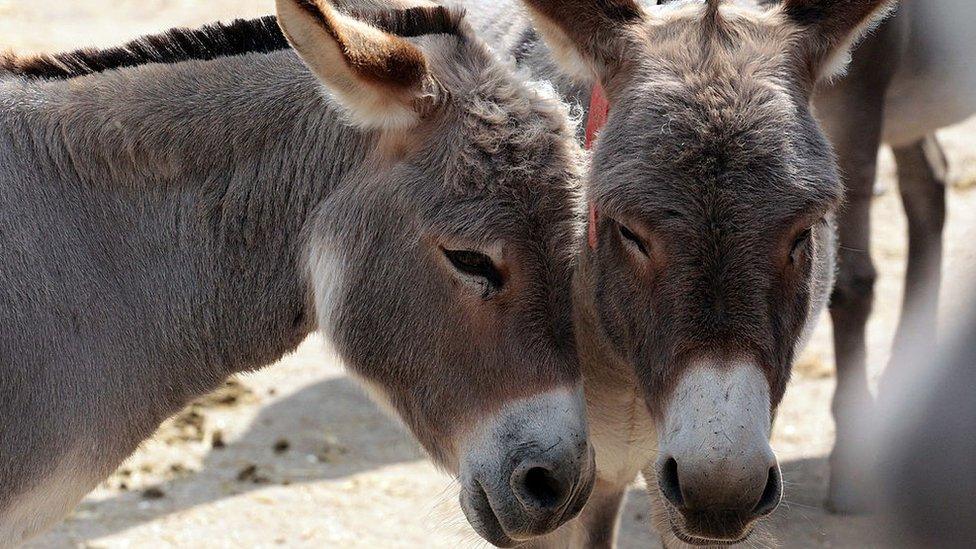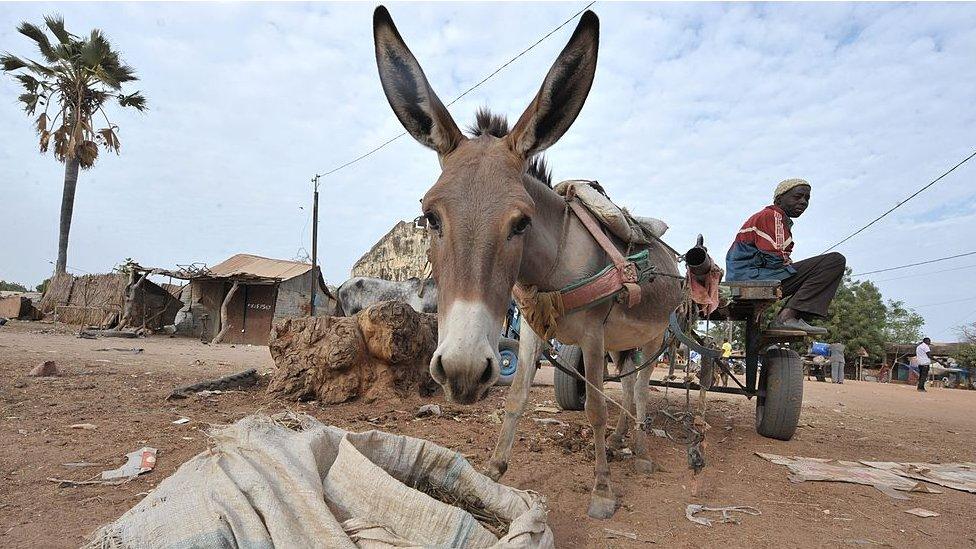South African police seize 5,000 donkey skins in Benoni farm raid
- Published

Donkey hides are prized in China for supposed medicinal properties
South African police say they are investigating the illegal donkey skin trade after seizing 5,000 hides in a recent raid east of Johannesburg.
Police suspect the skins found at a farm in Benoni last week came from illegally slaughtered animals whose hides were destined for China.
They described the raid as a major breakthrough against smugglers.
Trade in donkey skins is worth millions of dollars, with hides prized in China for supposed medicinal properties.
The gelatine in the hides is used as a medicinal tonic, with some believing it can slow down menopause in women.
It is also used to try to treat conditions such as insomnia and poor circulation.
The raid in Benoni followed a tip-off from a woman who had complained about the smell of rotting meat.
Police did not make any arrests at the farm but have said the raid provided important new information about a syndicate suspected of slaughtering the animals and transporting the meat and hides, without them being certified disease-free.
South Africa's Mail & Guardian newspaper said, external Chinese nationals were suspected of involvement.
'Bludgeoned with hammers'
On Monday, the paper reported, external that a site where more than 100 donkeys were illegally slaughtered had been discovered on a farm in Olifantshoek, in the Northern Cape.
The South African National Society for the Prevention of Cruelty to Animals (NSPCA) spoke of, external animals there "being bludgeoned with hammers and being skinned alive".
It called practices there "barbaric and inhumane" and criticised the government for "doing very little to end this illegal practice".
The Mail & Guardian quoted NSPCA inspector Mpho Mokoena as saying a suspect arrested at Olifantshoek had said skins there were transported to Benoni, suggesting a link between the two sites.
Police say donkey theft, slaughter and animal skin sales have been rising in South Africa since 2015.
Last year, Burkina Faso banned the export of donkey skins and Niger the export of donkeys saying a sharp increase in trade to Asian countries was threatening their donkey populations.
- Published6 September 2016

- Published10 August 2016
